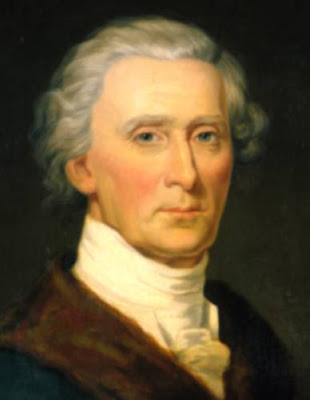Today is the feast day of St. Bridget (Birgitta) of Sweden, who lived in the fourteenth century. She was married in her early teens and had eight children, one of them St. Catherine of Sweden, she enjoyed a deeply committed and loving relationship with her husband, and at the same time acquired a reputation for personal piety and charity that attracted favorable notice from many people, including learned clerics and even the King of Sweden. When Birgitta was in her early forties her beloved husband died, after which she devoted herself completely to the practice of religion and Christian virtues. Also, as the Catholic Encyclopedia [link] puts it:
The visions which she believed herself to have had from her early childhood now became more frequent and definite. She believed that Christ Himself appeared to her, and she wrote down the revelations she then received, which were in great repute during the Middle Ages. They were translated into Latin by Matthias Magister and Peter Prior.
Influenced by these visions, she laid the foundations for a new religious order (the Brigittines), and set out for Rome, both to seek Papal approval for her order (which was finally granted twenty years after she set out, in 1370), and also to urge to Pope to return to Rome from Avignon (a task later taken up by St. Catherine of Siena). She is truly a versatile saint: she can be seen as a patroness of mothers and families, and also for those in religious communities, and also an exemplar of charity, piety, and determination.
One of things that I found most interesting about St. Bridget is summed up in this passage from the article about her [link] at Catholic Online:
One of things that I found most interesting about St. Bridget is summed up in this passage from the article about her [link] at Catholic Online:
Although she had longed to become a nun, she never even saw the monastery in Vadstena. In fact, nothing she set out to do was ever realized. She had never had the pope return to Rome permanently, she never managed to make peace between France and England, she never saw any nun in the habit that Christ had shown her, and she never returned to Sweden but died, [a] worn out old lady far from home in July 1373. She can be called the Patroness of Failures.
The article goes on to call her a “successful failure”, citing her canonization in 1391.
St. Bridget of Sweden is in fact an excellent example of the quote attributed to St. Theresa of Calcutta: “God hasn’t called me to be successful, he has called me to be faithful”. Whether or not Mother Theresa actually said it, it’s a marvelous statement of what it is to be a Saint. As St. Paul tells us, the “wisdom of this world” is foolishness in the sight of God (1 Corinthians 3:19). St. Bridget is a living reminder to all of us that our “success” as Christians consists in fidelity to Christ, and in nothing else.



